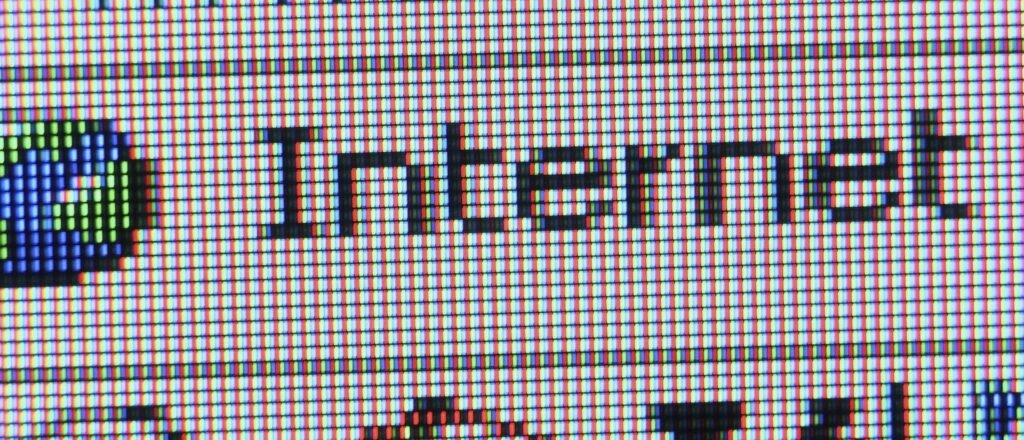The baby boom generation, born between 1946 and 1964, grew up without cell phones or personal computers.
Most of what they read as children was printed on some kind of paper: newspapers, magazines, novels, textbooks.
When watching TV, you were limited to choosing from a small number of stations depending on the reception in your neighborhood and the condition of your home antenna.
The world is not like that anymore, and it never will be like that. (Related article: Peter Biles: Gen Z needs to put their phones down and go on dates)
America is now an Internet nation.
The Census Bureau report This month, the 2021 U.S. Computer and Internet Use Study was released, which found that very few Americans, especially among younger generations, have access to internet-based communication at home.
Across the United States in 2021, 95% of all households owned some kind of computer (desktop, laptop, smartphone, or tablet) and 90.1% subscribed to broadband internet, according to the Census Bureau.
Of households with a head between the ages of 15 and 34, 94.6% had broadband internet. Of households with a head between the ages of 35 and 44, 95.4% had broadband internet. Additionally, of households with a head between the ages of 45 and 64, 92.2% had broadband internet.
The only group where broadband internet subscription rates fell below 90 percent were households headed by someone over age 65. Among these households, which are primarily made up of Baby Boomers and the Silent Generation (those born between 1928 and 1945), broadband internet subscription rates remained at 80.7 percent.
According to the Census Bureau, the majority of American households at all income levels had broadband internet in 2021. 97.8% of households earning $150,000 or more had broadband internet, compared with 96.6% of households earning $100,000 to $149,000, 93.6% of households earning $50,000 to $99,000, and 86.8% of households earning $25,000 to $49,999.
Even among the poorest American households, those earning less than $25,000 a year, 74.9% had broadband internet.
What was the family like when you were raising your children?
“Households with children under 18 were more likely than households without children to own any type of computer (99 percent) and a broadband subscription (96 percent),” the Census Bureau report said.
The question, then, is this a good or bad thing for America's children and the future of our nation?
Both possibilities are possible.
The internet itself is just a tool that can do good or bad things, just like any other tool.
A high school student these days can open their laptop and read Shakespeare's “Henry V” from start to finish online, then play the 1944 film version to see Laurence Olivier play the king.
Or high school students may be spending time on the same internet using the same devices, reading and viewing thoughtless or even malicious posts. They may end up poisoning their minds and souls with what they see and read.
During my time at university, I had the good fortune to study the work of the great Irish poet William Butler Yeats. When I first began to explore his work, I recall having to walk to my university library to find a collection of his poems that I could borrow and read.
Now these poems can be read online.
Written by Yeats over a century ago, one poem carries a message that remains as powerful today as it did when it was first published: it warns readers to be wary of sedition and falsehood and to be diligent in their search for the truth.
So-called: “Mob Leaders”
“To keep their certainty, they denounce all who have vile intentions, and tear asunder established honors, and listen eagerly to the news their vague fancies produce, and murmur under their breath, as if the overflowing ditch were Helicon, or the calumny a song,” Yeats writes in the poem.
“How can they know,” he continued, “that wherever the student's lamp shines, truth flourishes, and only where there is no loneliness?”
“So the crowd doesn't care what happens,” he concluded, “they listen to loud music, their hope is renewed every day, their love grows hotter. Their lamps come out of the tomb.”
Hopefully, young Americans who now live in countries where internet access is near-universal will use the internet as a student lamp to find the places where truth thrives.
Terence P. Jeffery is investigative editor for the Daily Caller News Foundation. To learn more about Terence P. Jeffery or to read features by other Creators Syndicate writers and cartoonists, visit the Creators Syndicate website at www.creators.com.
The views and opinions expressed in this commentary are those of the author and do not necessarily reflect the official position of the Daily Caller News Foundation.
As an independent, nonpartisan news service, all content produced by the Daily Caller News Foundation is available free of charge to any legitimate news publisher with a large readership. All republished articles must include our logo, reporter byline, and affiliation with the DCNF. If you have any questions about our guidelines or partnering with us, please contact us at licensing@dailycallernewsfoundation.org.
















